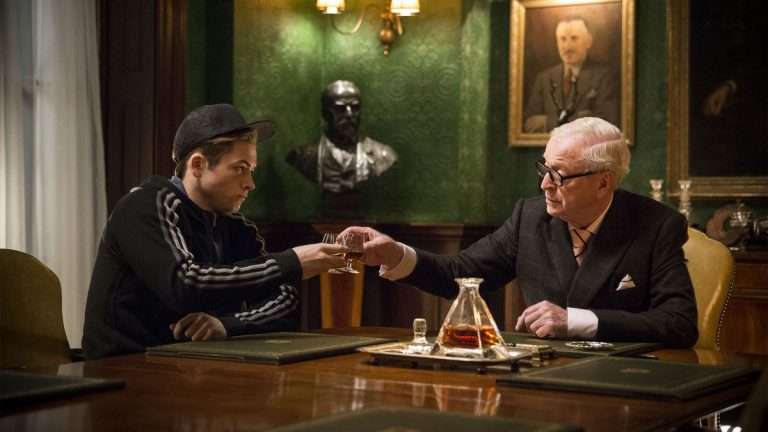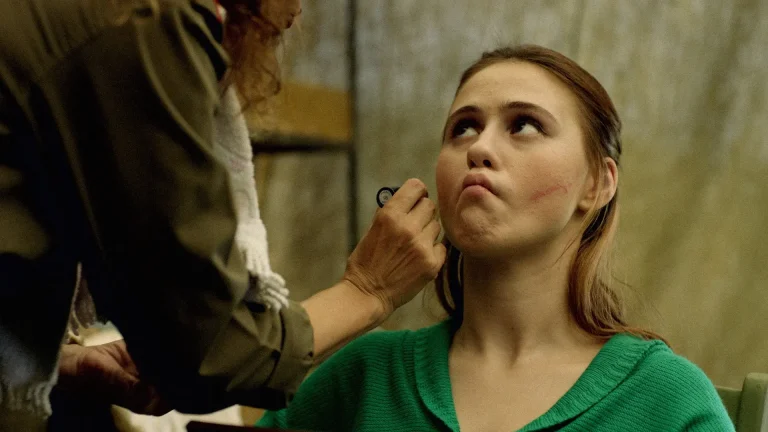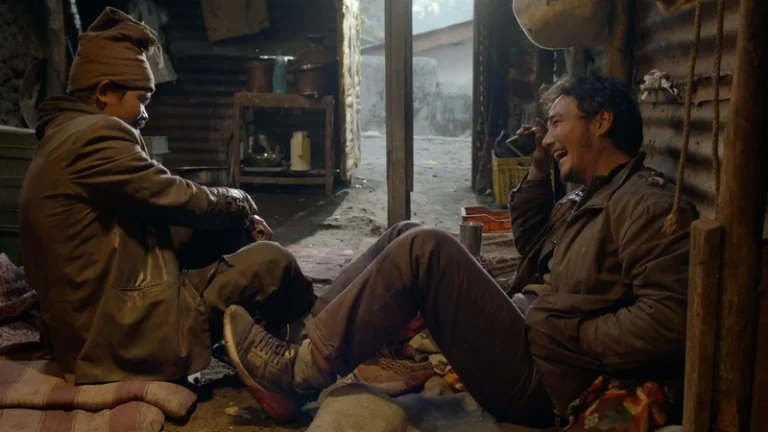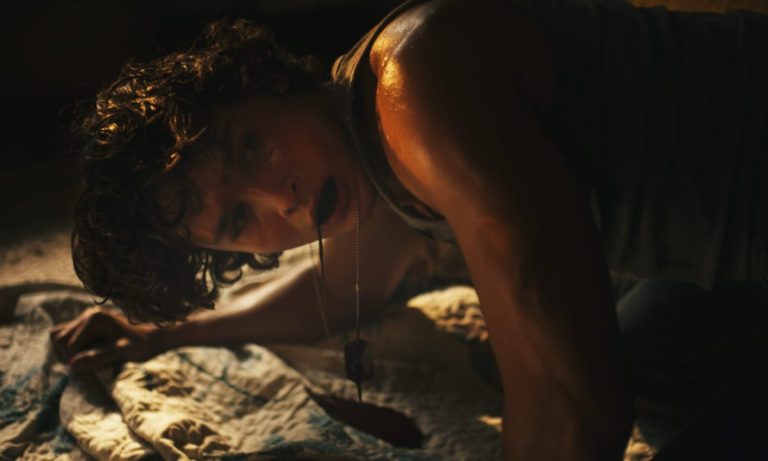Can gay camboy kid Aaron Eagle (Kieron Moore) get his cake of intellectual answers on pedophilia and hopefully avoid eating it too? Elliot Tuttle, in his feature debut, “Blue Film,” which has its world premiere at the 2025 Edinburgh International Film Festival, does a marvelous job of persuading us that desires (perverse or of the ordinary kind) are best to be discussed, apart from being justifiedly condemned and punished.
Aaron is a cam boy who uses the word f***t as a keyword to attract more tips for his intimate show; the more, the better. Well-built, hairy, fearless, and bold — he is one of those characters in whom you suspect a secret lack (of affection?) lurking just around the corner.
The opportunity comes when an anonymous older man pays him 50,000 USD to spend the night at his LA place. Aaron walks into a place sumptuously lit to exhibit unbridled eroticism (kudos to the director of cinematography, Ryan Jackson-Healy), only to find a person with a ski mask (Reed Birney) greeting him. He wants to know Aaron’s history and record it on camera, to which Aaron reluctantly agrees, after a series of back-and-forths.
Yet, after not a short while, it is revealed that Aaron’s client is Hank Grant, his middle school teacher. Grant was fired (and convicted) of a sexual assault on a 12-year-old student, a matter he admits as a matter of fact (and for which he was convicted). At the same time, he declares that Aaron was the love of his life; will Aaron stay or leave?
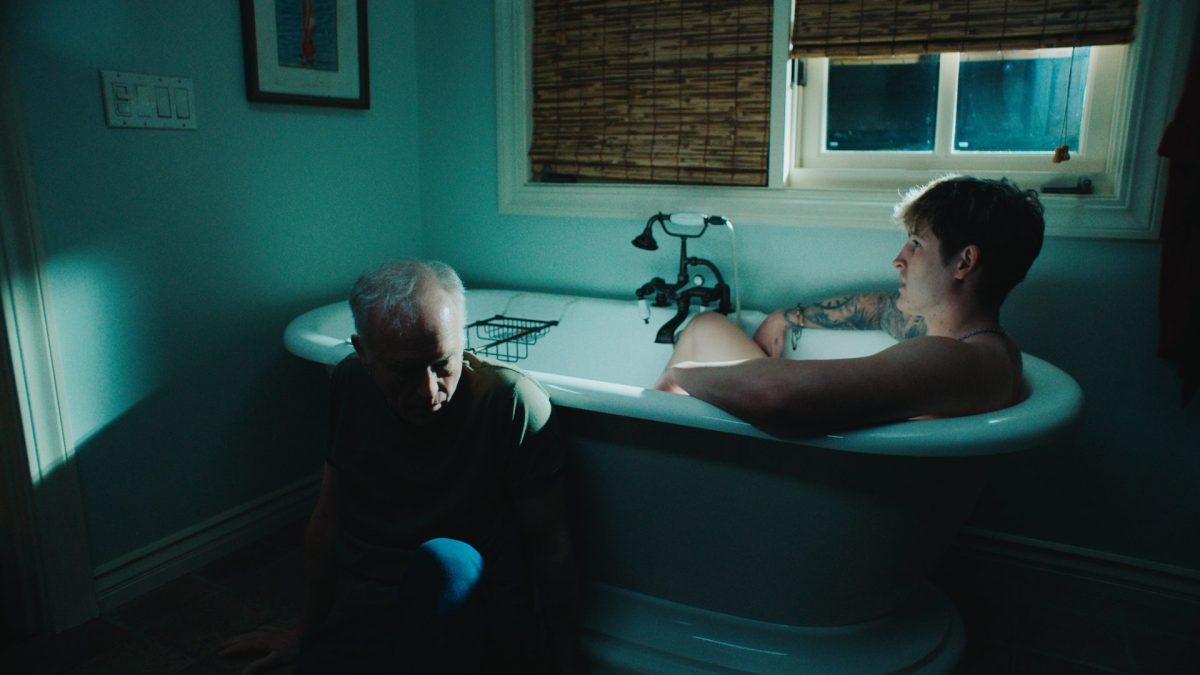
He settles for a beer, and the chamber piece begins to unravel. “Blue Film” follows strictly the Aristotelian act of unity and space, and time. The first, cam show part is followed by the interaction of two men in the rented LA place, only to conclude very briefly in its third act with an external scene (outside Grant’s place). This makes it quite challenging in terms of the material that needs to fill the screening time.
As needed, Tuttle (also the film’s writer) puts the sex scenes as a teaser and an appendix to the bulk of the ideas that have to be grappled with beforehand. And what ideas! Grant’s character is expertly crafted as a person who needs, at some point, to find ‘purity in subversion’ -otherwise, he will morally collapse under the burden of his act (and the newfound faith he advocates seemingly does not act as a lifeguarding savior either).
There is an ethical minefield here. Reid helps enormously by portraying a person sober enough to understand the distinction between doing harm to others and being unable to support it, and vulnerable enough to ask for a bit of rest for doing so throughout his later life.
Aaron, Reid’s newly found lifeguard, has his occluded history, revealed in a series of intimate conversations. The need to be loved permeates “Blue Film” (the title taken from Hollywood’s 1930 Hayes self-censorship code and the blue strips posed on non-permissible screen material. Yet, in Aaron’s case, it threatens the sex positivity of the character himself, making his act mostly a facade for another person’s affection.
Fortunately, Kieran Moore gives a masterful portrayal of childhood vulnerability, intimate half-silences, and fake arrogance that makes up for the perfect example of a questioning character, the one that would be attracted to the kind of story (including an origin pedophilia story) that Grant has to tell.
This is a film powerfully calculated to give the most challenging content under the most intimate settings. Without forgetting its external settings — amateur videos of young, happy children that act as a constant reminder of the offense described — Blue Film is a queerly intimate debut that rarely loses its scrutinizing compass. It moves between past and present as a different kind of coming-of-age story for both its characters: affection is not against all odds, but a troubled relationship left untold is better brought into the open.


